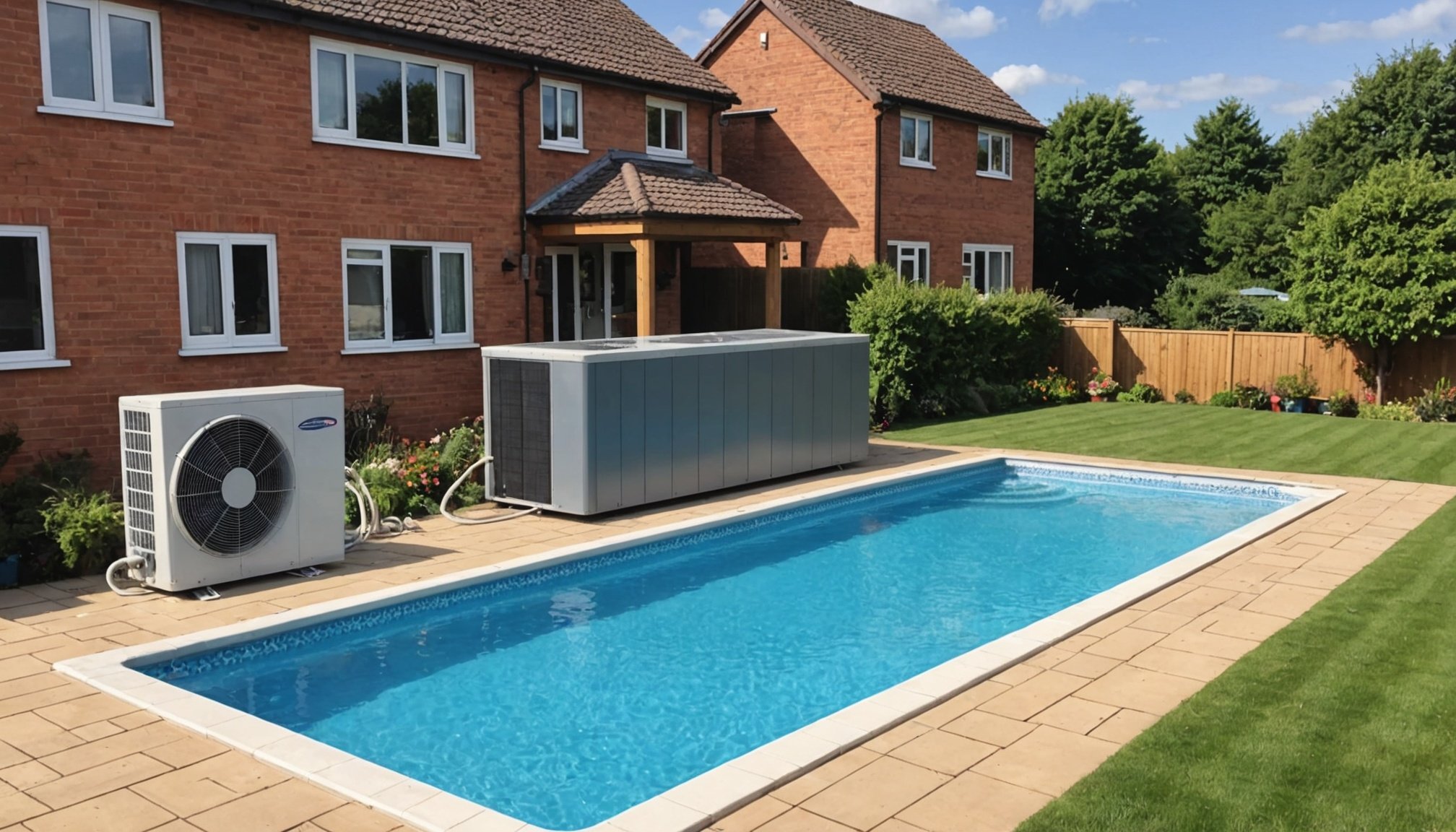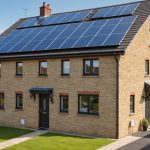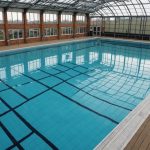Maximize Efficiency: Essential Tips for Utilizing Swimming Pool Heat Pumps in the UK
When it comes to maintaining the perfect temperature for your swimming pool, especially in the UK’s variable climate, heat pumps are an increasingly popular and efficient solution. Here’s a comprehensive guide to help you make the most out of your swimming pool heat pump, ensuring you save energy, reduce costs, and extend your swimming season.
How Swimming Pool Heat Pumps Work
To understand why heat pumps are so efficient, it’s crucial to grasp the basics of how they operate. A swimming pool heat pump uses electricity and refrigerant to transfer heat from one location to another. Here’s a simplified breakdown:
A lire en complément : Top Strategies for Integrating Sustainable Technologies into UK Swimming Pools
- Heat Extraction: The heat pump extracts heat from the outside air (or ground, in the case of ground source heat pumps) and transfers it to the refrigeration coolant.
- Compression and Heat Transfer: The coolant is compressed, increasing its temperature. This hot coolant then transfers its heat to the pool water through a heat exchanger.
- Efficient Heating: This process can transform 1 kW of electricity into 4-5 kW of heat energy, achieving a Coefficient of Performance (COP) of between 4 and 5, which is significantly more efficient than traditional gas-fired boilers or electric heaters[3].
Choosing the Right Type of Heat Pump
Not all heat pumps are created equal, and the type you choose can significantly impact your pool’s heating efficiency and costs.
On/Off Heat Pumps
On/off heat pumps have been around for decades and are the traditional choice for pool heating. However, they have some drawbacks:
Lire également : Transforming the Soundscape: Tips to Improve the Acoustic Atmosphere of Your Indoor Swimming Pool at Home in the UK
- Constant Speed: These pumps operate at a constant speed, which means they always run at maximum capacity, leading to higher noise levels and less efficient energy use.
- Frequent On/Off Cycles: The compressor needs to be turned on and off frequently to maintain the desired pool temperature, which can be less efficient and more wear-intensive[1].
Inverter Heat Pumps
Inverter heat pumps are a more modern and efficient option:
- Variable Speed: These pumps can operate at different speeds, adjusting their frequency (typically between 20Hz to 100Hz) based on the ambient temperature and the desired pool temperature.
- Energy Efficiency: Once the pool reaches the desired temperature, inverter heat pumps can reduce their power usage by 25-50%, delivering a COP of up to 13. This makes them twice as efficient as traditional on/off heat pumps[1][3].
Determining the Right Size for Your Pool
The size of your swimming pool is a critical factor in choosing the right heat pump. Here are some key considerations:
Pool Size and Surface Area
- Volume of Water: The volume of water in your pool directly affects the heat output required. Larger pools need more powerful heat pumps.
- Surface Area: The surface area of your pool influences heat loss. Pools with larger surface areas lose more heat and require more powerful heat pumps[1][3].
Climate and Location
- Ambient Temperature: The climate where your pool is located affects the heat pump’s efficiency. Inverter heat pumps can work efficiently even in temperatures as low as -10°C, making them ideal for UK weather[1][3].
Target Temperature
- Desired Pool Temperature: The temperature you want to maintain in your pool also plays a role. Higher temperatures require more powerful heat pumps.
Here is a rough guide to help you estimate the heat output needed for different pool sizes:
| Pool Size | Approximate Heat Output Needed |
|---|---|
| Small (10×5 meters) | 10-15 kW |
| Medium (15×7 meters) | 20-30 kW |
| Large (20×10 meters) | 30-45 kW |
| Extra Large (25×12 meters) | 45-60 kW |
Practical Tips for Maximizing Efficiency
To get the most out of your swimming pool heat pump, here are some practical tips:
Regular Maintenance
- Clean the Filter: Regularly cleaning the filter of your heat pump ensures it operates efficiently.
- Clear Debris: Keep the outdoor unit free from debris to maintain airflow and efficiency[2].
Optimize Water Flow
- Proper Water Circulation: Ensure the pool water circulates properly through the heat pump to maximize heat transfer.
- Avoid Obstructions: Make sure there are no obstructions in the pipes or around the heat pump to ensure smooth operation[3].
Use Solar Integration
- Pair with Solar Panels: Integrating your heat pump with solar panels can significantly reduce your energy costs and environmental impact. This setup allows you to heat your pool at no financial or environmental cost during sunny days[3].
Consider Hybrid Systems
- Hybrid Heat Pumps: For pools with high heating demands, consider hybrid heat pumps that combine a heat pump with a traditional boiler. These systems switch between the two energy sources based on the season and temperature, ensuring maximum efficiency[2].
Financial and Environmental Benefits
Using a swimming pool heat pump comes with several financial and environmental benefits:
Energy Savings
- Reduce Running Costs: Heat pumps can reduce your energy bills by up to 75% compared to traditional gas-fired boilers or electric heaters[1][3].
- High Efficiency: With a COP of up to 13, inverter heat pumps generate more heat energy per unit of electricity consumed, making them highly efficient[1].
Environmental Impact
- Eco-Friendly: Heat pumps are a more eco-friendly option as they produce fewer emissions compared to traditional heating methods. They can also be paired with renewable energy sources like solar panels[3].
Government Incentives
- Financial Support: The UK government offers financial support for installing heat pumps as part of their low-carbon heating strategy. This can help offset the initial installation costs[2].
Technical Support and Installation
Ensuring your heat pump is installed and maintained correctly is crucial for its efficiency and longevity.
Professional Installation
- Consult Experts: Always consult with a qualified installer who can provide tailored advice and ensure the heat pump is installed correctly. They can also help you choose the right size and type of heat pump for your pool[2].
Ongoing Maintenance
- Regular Checks: Regular maintenance by a qualified electrician can help extend the lifespan of your heat pump and reduce downtime. Companies like Dantherm Group offer extensive support and spares to help you maximize efficiency and save money[3].
Comparison of Heating Systems
Here is a comparison table to help you understand the efficiency of different heating systems:
| Heating System | Efficiency |
|---|---|
| Heat Pump | 300-400% |
| Boiler | 99-100% |
| Electric Heater | 100% |
This table highlights the superior efficiency of heat pumps compared to traditional boilers and electric heaters[2].
Swimming pool heat pumps are a highly efficient and sustainable solution for maintaining the perfect temperature in your pool. By choosing the right type of heat pump, ensuring proper installation and maintenance, and integrating with renewable energy sources, you can significantly reduce your energy costs and environmental impact.
Here are some key takeaways:
- Inverter Heat Pumps: These are the most efficient option, offering variable speed operation and high COP values.
- Regular Maintenance: Keep your heat pump clean, clear debris, and ensure proper water circulation.
- Solar Integration: Pair your heat pump with solar panels for additional energy savings.
- Professional Support: Consult with experts for installation and ongoing maintenance.
By following these tips, you can maximize the efficiency of your swimming pool heat pump, extend your swimming season, and enjoy a comfortable and sustainable pool experience all year round.











